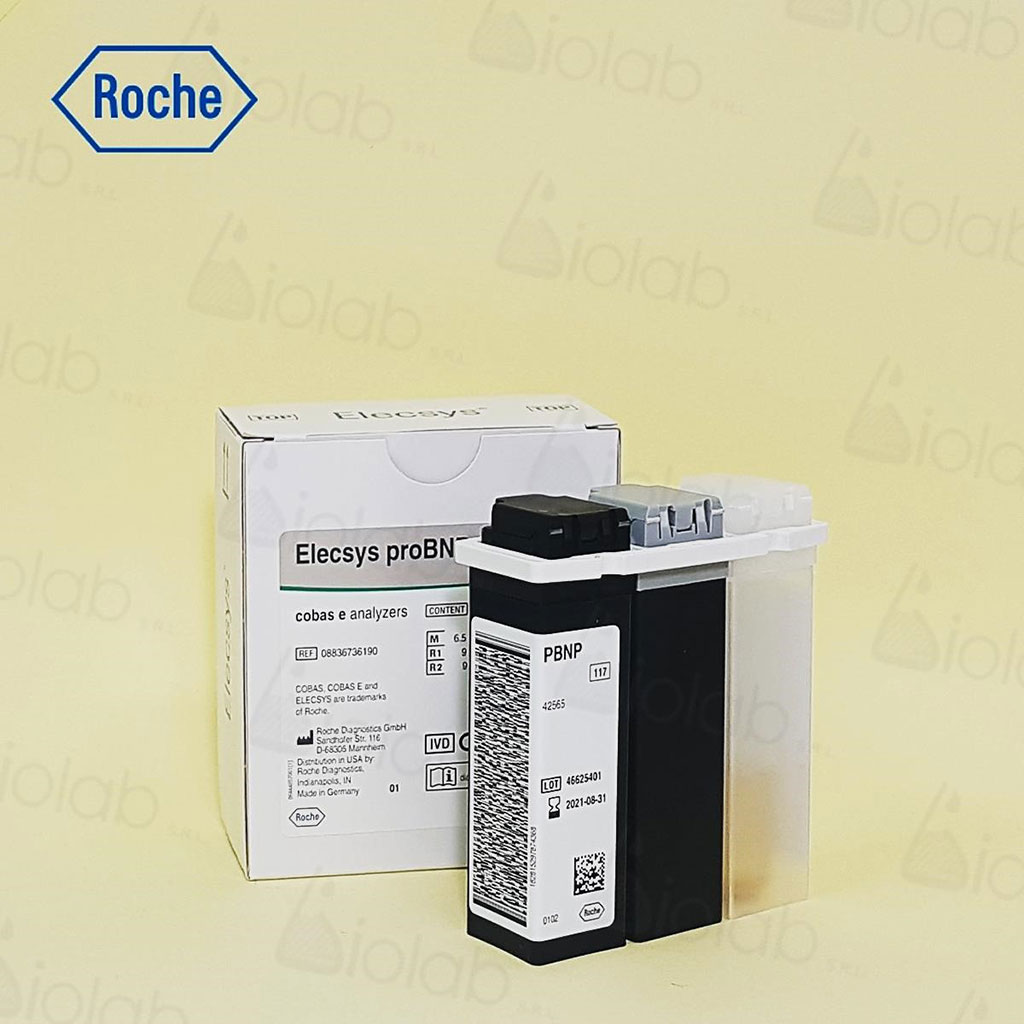High NT-proBNP Paradoxically Shows Lower Risk in Early Pregnancy
By LabMedica International staff writers
Posted on 03 Feb 2022
Hypertensive disorders of pregnancy are associated with future cardiovascular disease, perhaps because of subclinical cardiac dysfunction before pregnancy leading to impaired adaptation to pregnancy. Posted on 03 Feb 2022
N-terminal pro-brain natriuretic peptide (NT‐proBNP) is emerging as a diagnostic tool in the diagnosis of heart failure. It increases with ventricular volume expansion and pressure overload. It is raised in several cardiac conditions, but most studies have focused predominantly on systolic dysfunction in comparatively young patients.

Image: Elecsys Pro-BNP II Gen Assay may identify higher natriuretic peptide levels during early pregnancy were better for maternal blood pressure (Photo courtesy of Biolab Diagnostics)
Clinical Scientists at the University of Pittsburgh School of Medicine (Pittsburgh, PA, USA) and their colleagues investigated whether higher concentrations NT-proBNP in early pregnancy would be associated with hypertensive disorders of pregnancy and hypertension 2 to 7 years post-partum. A total of 4,103 nulliparous women with complete data and no pre-pregnancy hypertension or diabetes, who were treated at eight clinical sites, were included in a study. Women were followed up with for 2 to 7 years after pregnancy. Data were collected from October 2010 to October 2017, and data were analyzed from August 2020 to November 2021. NT-proBNP concentrations were measured using an electrochemiluminescence immunoassay from a first-trimester blood sample.
The scientists reported the mean ± SD age of the study participants was 27.0 ±5.6 years. Among these women, 909 (22.2%) had an adverse pregnancy outcome, and 817 (19.9%) had hypertension at the follow-up visit. Higher NT-proBNP concentrations were associated with a lower risk of hypertensive disorders of pregnancy (adjusted odds ratio per doubling, 0.81; 95% CI, 0.73-0.91), which persisted after adjustment for age, self-reported race and ethnicity, early-pregnancy body mass index, smoking, and aspirin use. Similarly, higher NT-proBNP concentration in early pregnancy was also associated with a lower risk of incident hypertension 2 to 7 years after delivery; adjusted odds ratio per doubling, 0.84, an association that persisted after controlling for confounders, including hypertensive disorders of pregnancy.
Alisse K. Hauspurg, MD, an obstetrician-gynecologist and lead author of the study, said, “Women who experienced adverse pregnancy outcomes had lower first-trimester concentrations of N-terminal pro-brain natriuretic peptide (NT-proBNP), median 56.0 pg/mL, a biomarker for subclinical cardiac dysfunction, versus 63.0 pg/mL for women who did not have these outcomes.”
The authors concluded that in this cohort study, higher NT-proBNP concentrations in early pregnancy were associated with a lower risk of hypertensive disorders of pregnancy and hypertension 2 to 7 years post-partum. These findings suggest that normal early-pregnancy cardiovascular physiology, as assessed by NT-proBNP concentration, may provide biologic insights into both pregnancy outcome and cardiovascular disease risk. The study was published on January 19, 2022 in the journal JAMA Cardiology.
Related Links:
University of Pittsburgh School of Medicine













